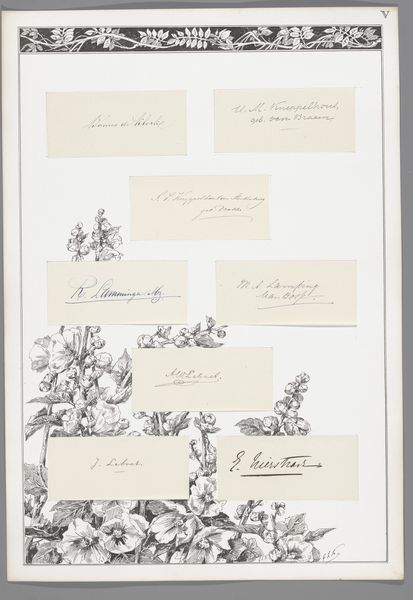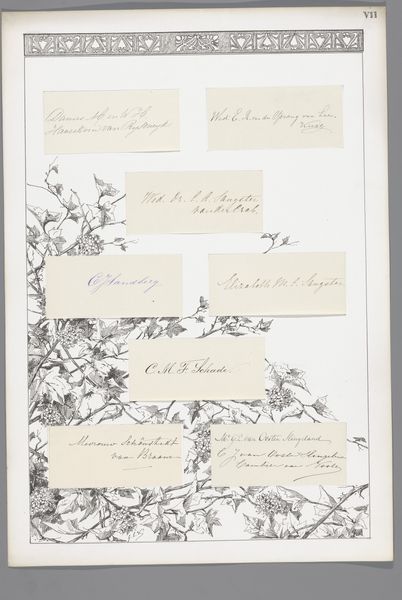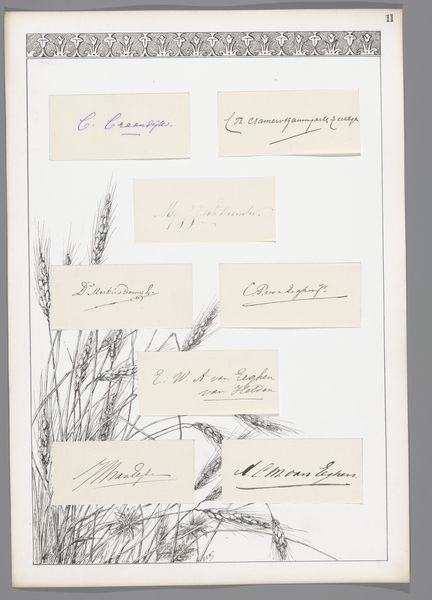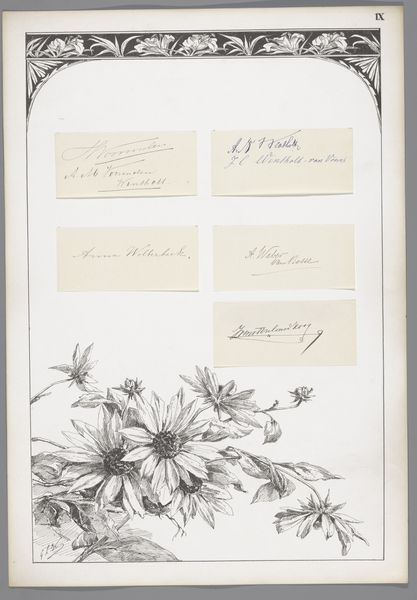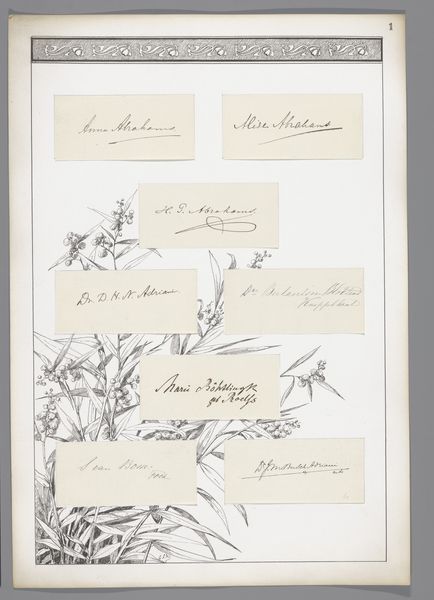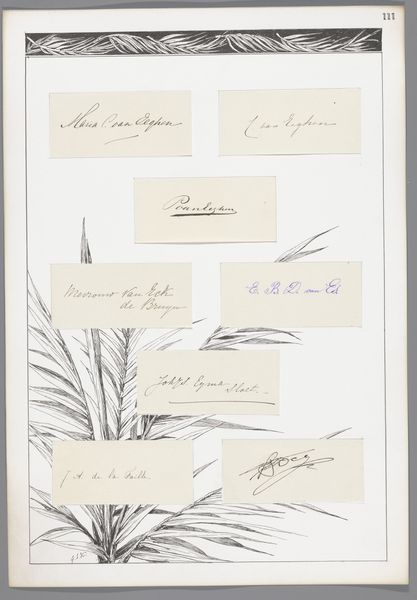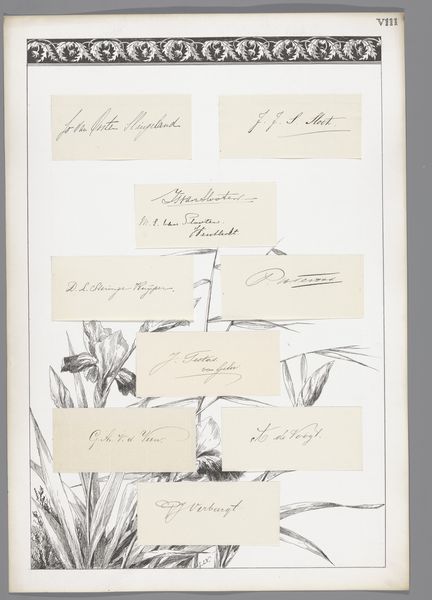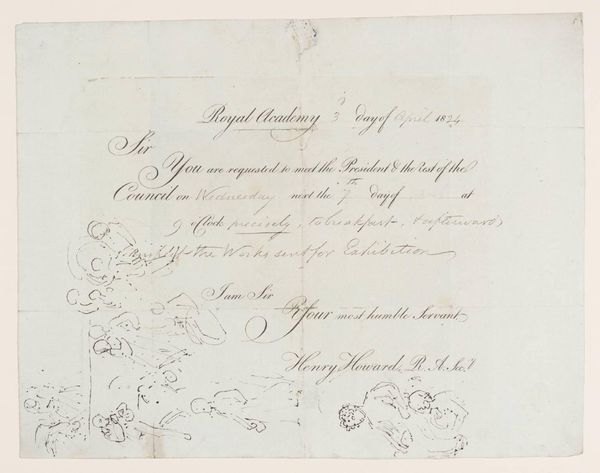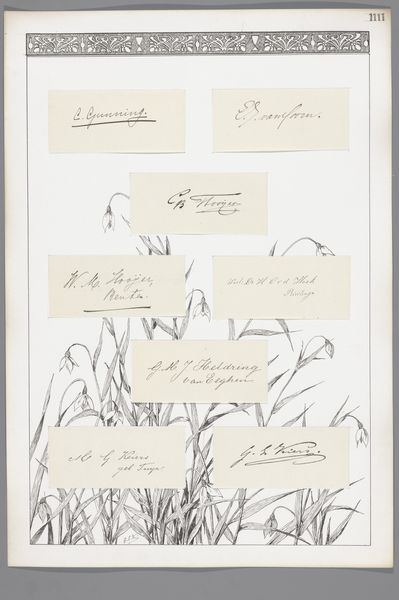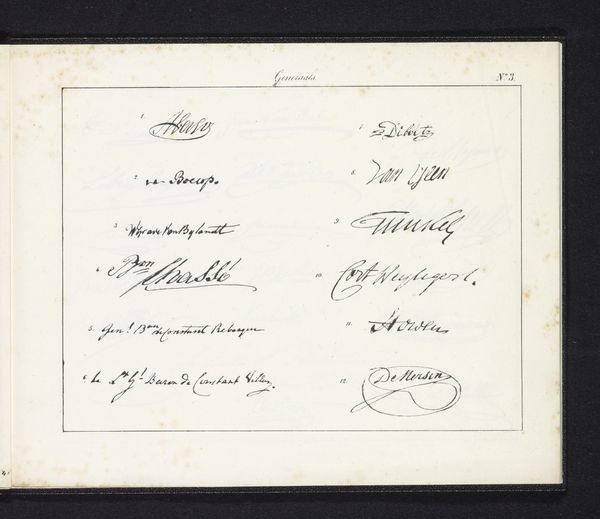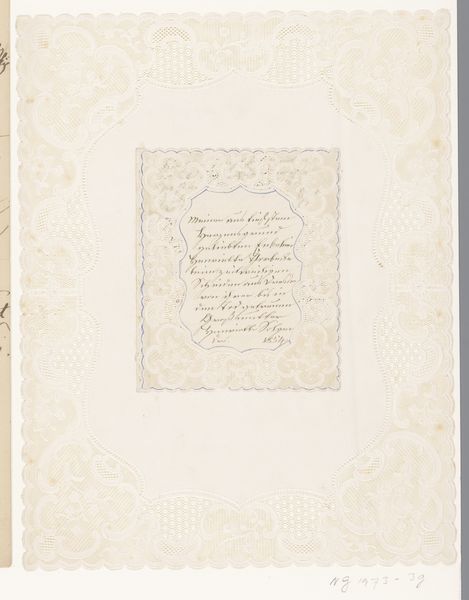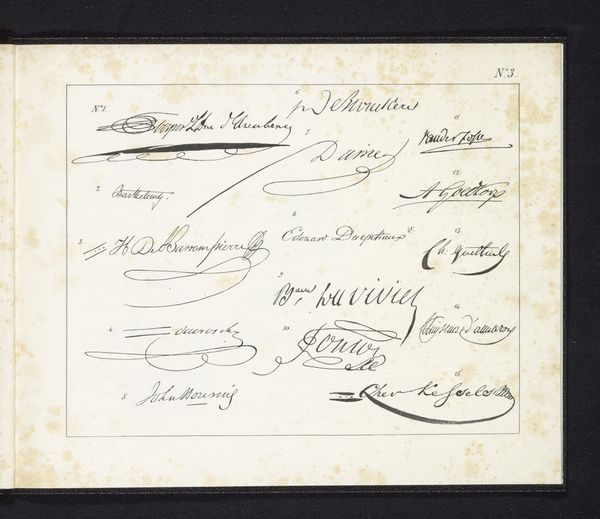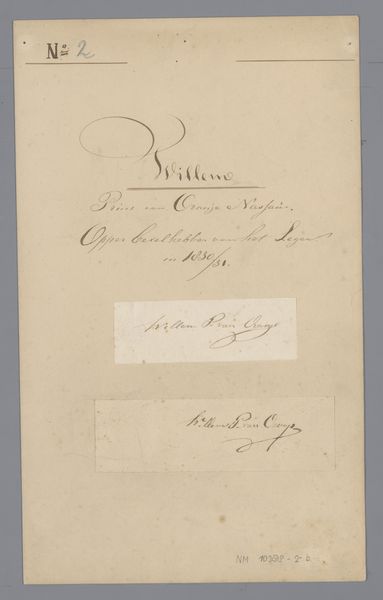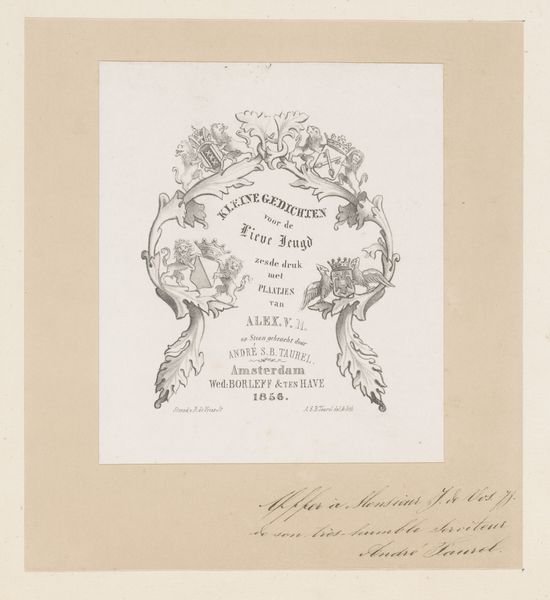
Acht handtekeningen geplakt op een blad met bloesem en decoratieve rand 1904
0:00
0:00
georgelourenskiers
Rijksmuseum
drawing, paper, ink
#
drawing
#
asian-art
#
flower
#
paper
#
ink
#
line
Dimensions: height 453 mm, width 314 mm
Copyright: Rijks Museum: Open Domain
Editor: This drawing from 1904 by George Lourens Kiers, titled "Eight Signatures Pasted on a Sheet with Blossom and Decorative Border," is comprised of ink on paper. It feels like a very formal, almost regimented presentation of something organic, like handwriting. What's your take? Curator: What strikes me is the intersection of individual identity and collective memory, represented by the signatures framed by nature. How do we interpret the presence and arrangement of these signatures, considering the social context of early 20th century? Are these prominent figures? And does the floral motif serve as a softening agent to this rigid presentation, perhaps pointing towards the role of nature in national identity and representation? Editor: That's an interesting thought. I hadn’t considered the identities themselves. Do you think Kiers was trying to say something about hierarchy or perhaps class? Curator: Exactly. It’s impossible to separate art from the social dynamics in which it exists. Think about the function of signatures at that time: How did signing one's name equate to power or authenticity? Moreover, whose signatures *aren't* here, and what does that say about power structures in the early 1900s? And could the choice of the cherry blossom have to do with increased trade and western fascination with Asian art? Editor: So, by looking at the artwork in this way, we can unpack it not just as a drawing, but also as a historical and cultural artifact. Thanks for highlighting these aspects! Curator: Precisely! It reveals that every artistic choice, consciously or not, is rooted in sociopolitical and economic contexts. This opens up our reading of the work and allows for intersectional reflection on history and art.
Comments
No comments
Be the first to comment and join the conversation on the ultimate creative platform.
